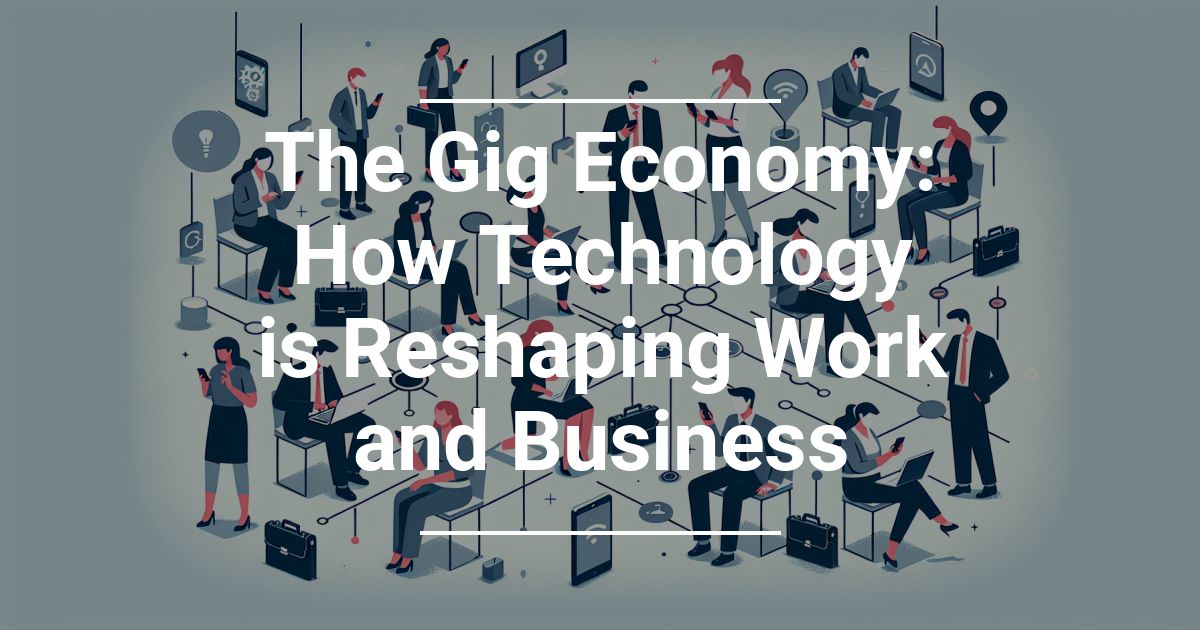 The chances are you’ve probably heard musicians, actors, artists, writers, and many others referring to their jobs as gigs. These odd jobs mean they do not have a single long-term employer or a traditional work schedule. While these positions have always been around, making these workers freelancers, the gig economy has recently taken off, especially with the rise of AI and other technology.
The chances are you’ve probably heard musicians, actors, artists, writers, and many others referring to their jobs as gigs. These odd jobs mean they do not have a single long-term employer or a traditional work schedule. While these positions have always been around, making these workers freelancers, the gig economy has recently taken off, especially with the rise of AI and other technology.
What Is the Gig Economy?
Thanks to digital marketplaces and platforms allowing individuals to communicate and do business, many freelancers are finding job opportunities and potential clients, which enables them to earn an income while maintaining a work-life balance. These environments, set off by digital technology, create a gig economy. Below, we’ll delve further into how technology encourages freelance benefits.
Digital Marketplaces Increase Flexibility
As a small business owner, you may not have all the in-house assistance necessary to run your company. You may outsource from a marketing department to an IT team to receive help. By hiring gig workers, such as freelance creative writers, to help create ad copy or technicians to repair equipment, you don’t have to pay for full-time teams.
Instead, flexibility allows you to only pay for services when needed most. You, the employer, post about project-based work on a digital marketing platform and receive applicants for the job. Both you and the freelancers also save on travel expenses and other costs that come with meetings, like refreshments and renting a conference room, since they have the flexibility to work remotely.
A Global Talent Pool Improves Options
With flexibility comes diversity since virtual connections transcend physical barriers. Employers who post job opportunities don’t just receive applications from candidates who reside nearby but anywhere in the world. These potential employees don’t need to come in for interviews or daily work, giving the employer a better chance of finding the best in the global talent pool.
The candidates also benefit from online platforms in a gig economy since they can use their interests and abilities to find work with any company anywhere. They can partner with companies in varying industries, which not only helps them develop new skills as they work on diverse projects but also allows them to reach new professional heights.
Less of a Commitment for Both Parties
Imagine finding your talent only to discover they didn’t meet your expectations. Risk mitigation is easier when dealing with short-term contracts than long-term hired employees since the freelancer only works with you until the task’s completion. Afterward, you don’t have to work with them again and can begin looking for new talent when starting your next project.
Freelancers also gain more autonomy since they only take on preferred jobs. They choose how many to juggle at once and when they don’t want to accept any at all. This gives them a better work-life balance and less commitment to one company.
Gig platforms help employers and freelancers scour the workforce for jobs, customers, and employees unlike ever before. So, as a small business owner, consider entering the gig economy before tackling your next big task.


